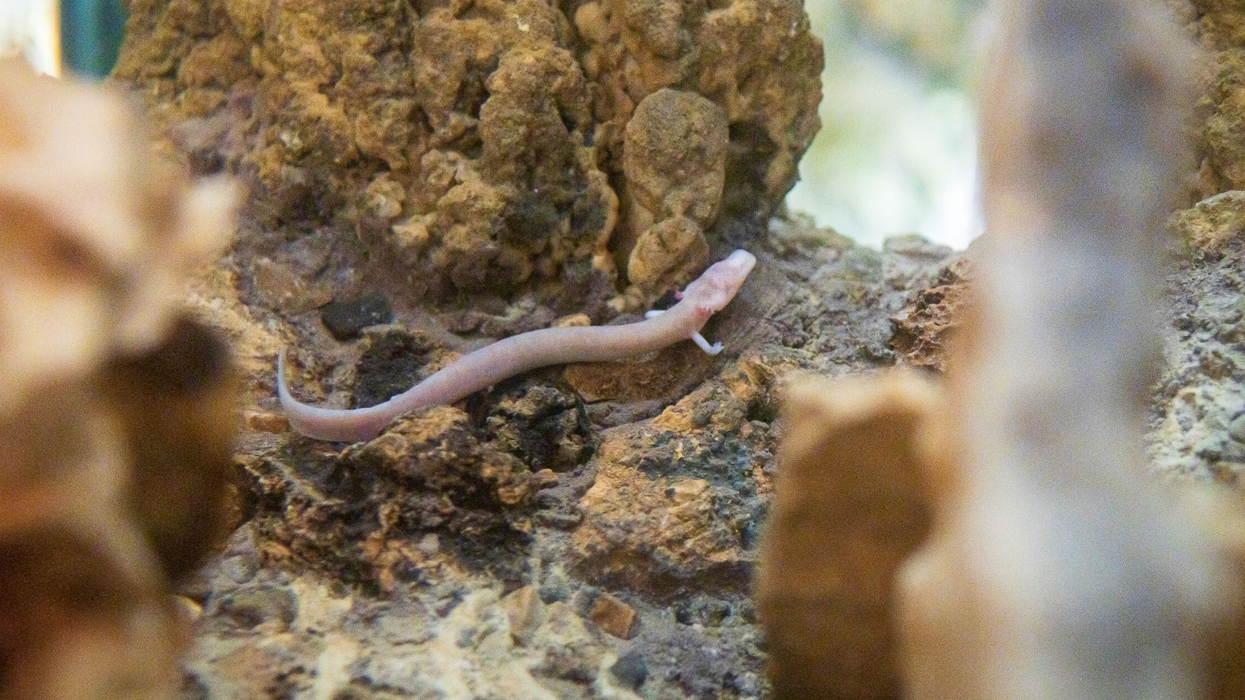
It sounds like a line from a children’s book.
For years, a team of Slovenian researchers have been working on raising a group of ‘baby dragons’ – which are actually ‘olms’, a kind of ancient aquatic salamander which bred once a decade – in Postojna cave, in Slovenia.
They hatched four years ago, and now visitors will be able to see them up close. These olms were first described in 1689, by a naturalist – they were often believed to be dragons’ offspring, according to local legend.
They can live up to 100 years, and live underwater.
These creatures are incredibly rare. In 2016, 60 eggs were laid in a tank in the cave, where they’re most likely to grow, as they were protected. They were featured on David Attenborough’s last documentary, Seven Worlds, One Planet.
But they were kept out of the sight of anyone who didn’t work at the laboratory. Now, scientists are relaxing measures. Every day, up to 30 people will be allowed in to see the animals in their observation tank.
The olms themselves may not look like dragons of mythology – they’re long and often translucent, without many distinguishing features. But if a female olm lays one hundred eggs, often only two reach adulthood – so it’s incredibly hard to actually see one alive.
The tour will be called “Meet the baby dragons”, and will be available as a tour in both Slovenian and English.
For years, the scientists taking care of the olms - two of which have been primarily responsible for their wellbeing, and are referred to as the “dragon coaches” – have monitored how the olms grew with infrared and video cameras.
Since 2016, they’ve amassed over 200,000 hours of footage, some of which is available on their website.
In a statement, Katja Batagelj, the woman in charge of the laboratory in the cave, said:
It was very moving but also very frightening, because we knew all along that something unique was happening, and that it was up to us how everything would turn out in the end.
We had a huge responsibility as the very things started happening for us that Postojna Cave had been hoping for for centuries.













